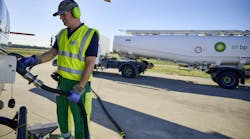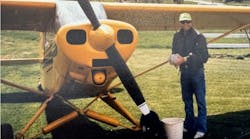June 08--The drone swooped down on the Newport Coast house at 10 a.m. on a recent Friday.
For two hours, the remote-controlled, 4-foot-wide "octocopter" dipped and dived, circled and buzzed around the hilltop property at 1 Via Emilia.
Instead of firing missiles, however, the eight-prop drone shot high-resolution video and photos. And the agent who deployed the drone doesn't work for the CIA; he's with First Team Real Estate.
The mission was to create a real estate marketing video unlike any from the competition, said Realtor Marcus "Kiwi" Gualter, who paid $2,200 to produce the video.
Six weeks after the March 8 filming, a buyer purchased the 4,800-square-foot luxury home for $4.4 million.
Gualter said the drone footage was key to selling the house so quickly.
"It was instrumental in creating a higher level of interest for the property," said Gualter, who works out of First Team's luxury-home office in Newport Beach. "You always want to be Superman," he said, and with the drone, "you can fly around the house like Superman."
The video was one of a handful shot with drones for Orange County home sellers in recent months. It's also one of the latest -- and controversial -- ways that drones are seeping into civilian life.
These drones are smaller, civilian cousins of the military Reapers and Predators waging war in Yemen, Afghanistan and Pakistan. Potential applications include public safety, search and rescue, oil and gas exploration, farming, and Hollywood productions.
Police in western Colorado use drones to document crime scenes. Tests are under way in England and South Africa to have drones deliver pizza and beer.
In the service of selling homes, drones can deliver dramatic aerial views at a fraction of what it used to cost.
Prudential California Realty agent Phil Immel paid $8,000 10 years ago to have a helicopter shoot video of a beachfront house at 37 Monarch Bay Drive in Dana Point. He paid just $800 in April to shoot a video of the same house using a drone.
"With drones, it's a heck of a lot cheaper," Immel said. "And some of the angles are better. ... With a drone, you can start right at the beach and come up the bluff and show the house, the golf course, and show the Ritz-Carlton. So you're selling a lifestyle."
In recent months, Immel produced several drone videos promoting the Monarch Beach house, two homes in San Juan Capistrano and pitching the amenities of neighborhoods he's active in.
Legal, privacy questions
One problem for these and other civilian-use drones: For now, they're banned under federal aviation rules.
The FAA decreed in 2007 that unmanned flight be limited to recreational use of model aircraft, specifically excluding drone use for business purposes.
Congress ordered the FAA last year to open the skies to commercial drones, giving the agency until Sept. 30, 2015, to draft new rules.
Until new rules are final, however, "any commercial operation where money changes hands is prohibited," said FAA spokesman Les Dorr. Violators aren't being prosecuted, but are being asked "politely" to stop.
Meanwhile, Dorr said, it's the agency's responsibility to make sure drones are safe for existing aviation as well as for people and property on the ground.
A March 4 incident underscored these concerns. An Alitalia pilot heading from Rome to New York reported seeing a 3-foot drone 200 feet from his commercial jetliner as he prepared to land at John F. Kennedy International Airport, the FBI said.
Privacy is another concern.
Civil libertarians expressed fears that law enforcement and perhaps ordinary citizens will abuse drones as the aircrafts become increasingly available and less expensive.
The Capitol Hill Seattle blog quoted a resident as saying that she spotted a camera-equipped drone hovering right outside her third-story window in early May. When her husband asked the operator on the sidewalk to stop, the man insisted he had a right to continue, the blog reported. He reportedly left when the couple called the police.
The FAA projects 7,500 small commercial drones will be operating in the U.S. over the next five years. They'll be doing such tasks as land surveys for home sites, roof inspections and making sure burning buildings are safe for firefighters to enter, says Melanie Hinton, spokeswoman for the Association for Unmanned Vehicle Systems International.
Hinton estimated the economic impact from U.S. drones will reach $82 billion annually by 2025, creating almost 104,000 jobs -- 18,000 in California.
"The applications are endless," she said.
Wave of the future
Although Gualter and Immel are among the first Orange County real estate agents to use drones, the practice has been going on elsewhere for perhaps two years, marketing professionals say.
Operators first used remote-controlled model planes and helicopters to shoot photos. As motion stabilization equipment grew increasingly sophisticated, drones were used to shoot high-quality video.
Civilian drones tend to be less than 25 pounds and have a battery life of 15 minutes to an hour. Prices can start around $300 and range upwards to $40,000.
"A lot of these (home) buyers are international buyers, and they want the whole perspective," said Stu Laureano, founder of real estate media firm California Image Maker in Redondo Beach, which has helped three agents shoot videos using drones.
"They want to see the neighborhood rather than wait for their next visit from France or China. ... It allows us to showcase the lifestyle, what it's like to live there."
Just last Tuesday, two drones took to Orange County skies.
Orange County Coastkeepers, a beach environmental group, hired an octocopter to shoot aerial photos of 1,000 elementary schoolchildren lined up in formation during the Kids Ocean Day program at Huntington State Beach.
Later Tuesday, Josh Lambeth, owner of Phoenix-based Birds Eye Productions, unloaded his own $20,000 octocopter on a Newport Coast street, programmed it for wind conditions using a netbook computer, then shot about 17 minutes of footage for Gualter's second home-selling video.
With associate Noel Lucas remotely operating the attached Canon 5D Mark II camera, Lambeth guided the 19-pound copter 100 to 120 feet into the air above the property.
A neighbor pulled up and shot pictures with his iPhone. "You don't have anything growing in your backyard, do you?" Gualter joked.
The neighbor, who didn't want to give his name, said it's OK with him if agents use drones to shoot videos, "as long as it respects the privacy of the neighbors." Guess what, he added, it's all available on Google Maps.
After shooting the front of the house from various angles, Lambeth flew his octocopter down the street and hovered above the community pool, grabbing shots of Newport Harbor in the distance.
He then filmed several shots from the rear of the home. Within an hour, he was done. This video will cost Gualter $1,000.
Immel and Gualter both said they were unaware that the FAA prohibited the commercial use of drones.
"I would say it's taken off, regardless," Gualter said. "But we have to abide by the rules."
Lambeth recently used his drone to shoot footage for an upcoming tourism video commissioned by Huntington Beach. He wondered how drones could be prohibited when so many entities -- including city governments and large companies -- are using them.
"I have yet to see anything saying that what we are doing is, in fact, against the law/rules of the FAA," he said in an email.
Another drone operator who shoots real estate videos, Scott Magner of Laguna Niguel, declined to comment for this story. Online real estate site Inman News recently quoted Magner as calling drones "a tripod in the sky."
Once the ban is lifted, Gualter and others think demand for drones will take off.
Aerial photography probably will be most useful for luxury properties and homes with more land around them, they said. High-rise owners may want to use them to inspect their buildings.
"I think you'll see drones for everything," Gualter said.
Register staff writer Aaron Orlowski contributed to this report.
Contact the writer: [email protected]
Copyright 2013 - The Orange County Register


